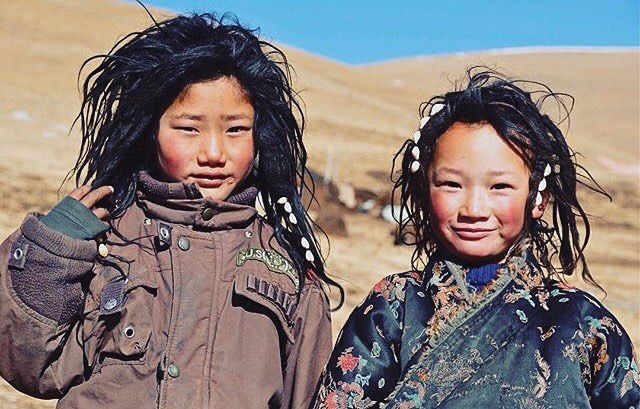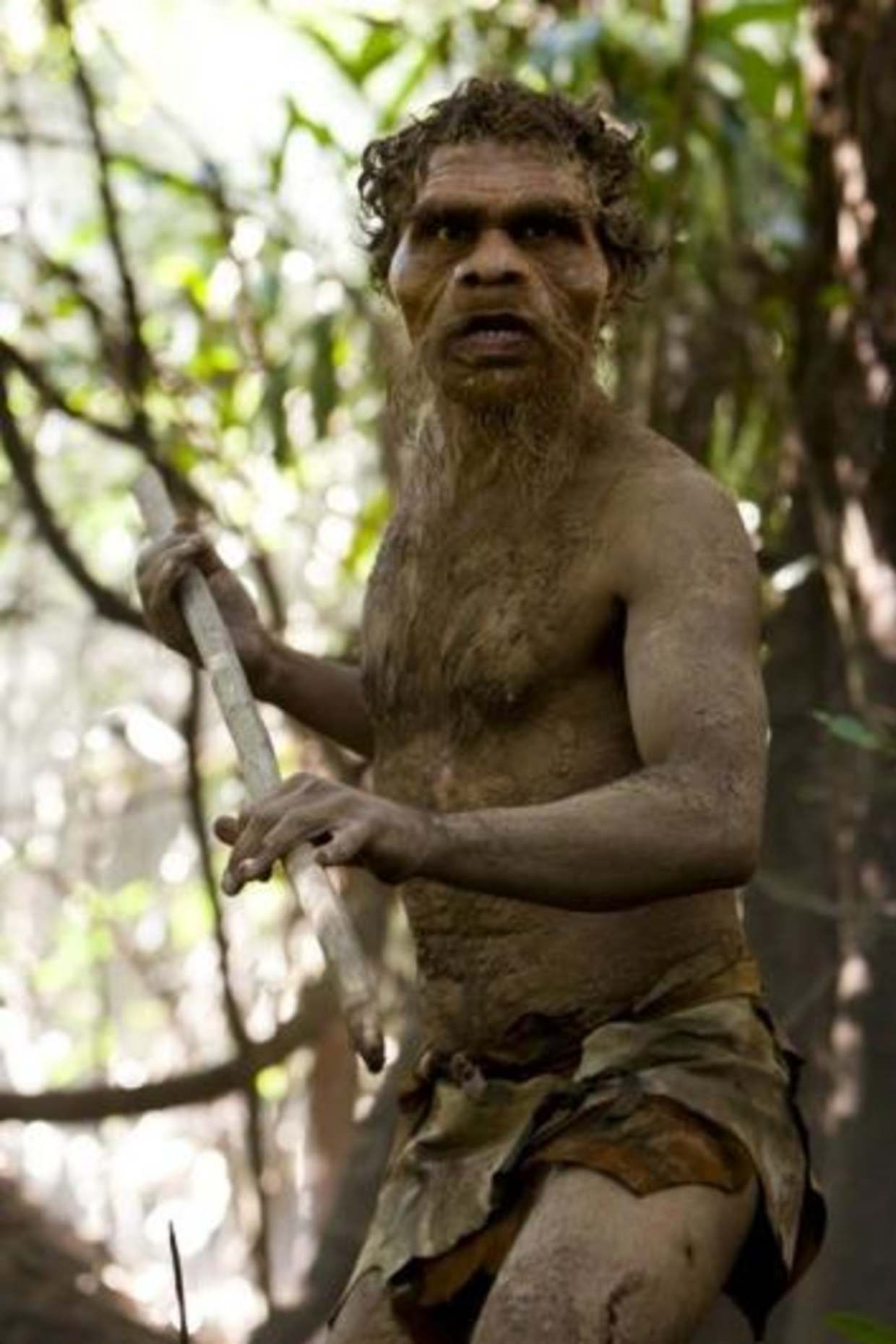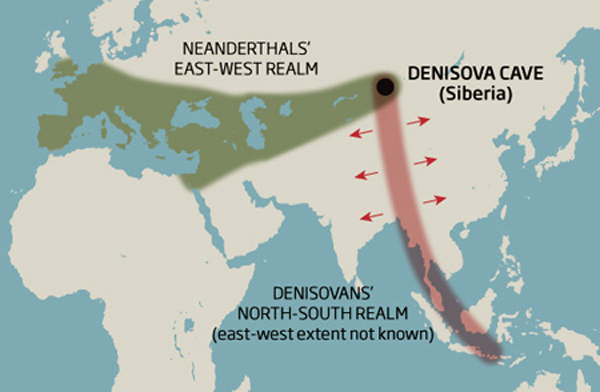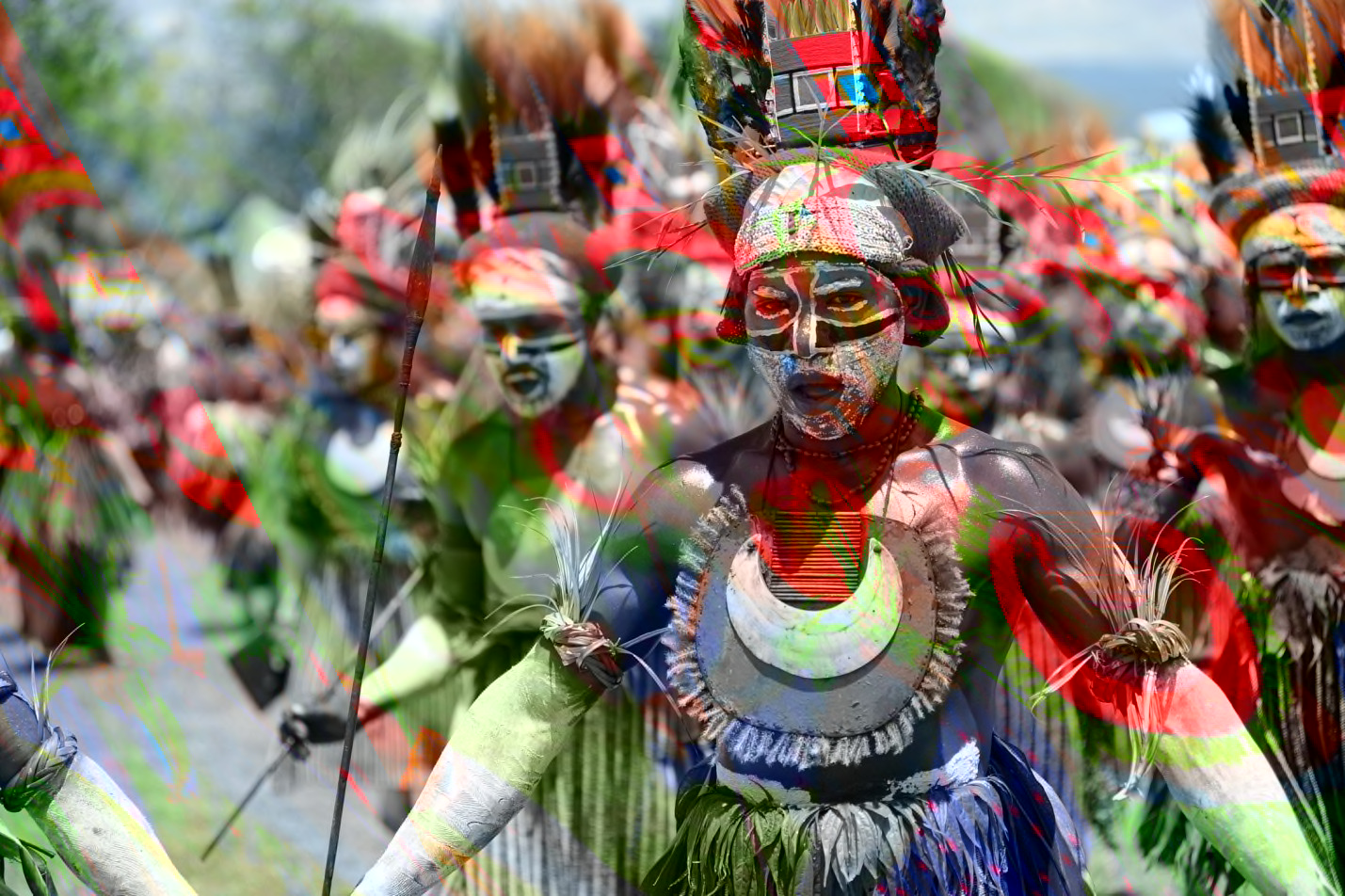

A reconstruction an archaic human, (possibly a late surviving Denisovan from around 11,000 years ago), found in a cave in Yunnan

A map showing the spread of Neanderthal and Denisovan populations.

A recent festival in Papua New Guinea.
Are we Partly Non-human?
In 2010, scientists learned that a species of archaic humans lived in Asia until about 20,000 years ago. They are now known as the Denisovans. The DNA of Denisovans was extracted from their remains, found in a cave in Siberia. They are cousins of the Neanderthals, another archaic human species, who lived in Europe during the last Ice Age. They are very distant cousins of modern humans who emerged from Africa and entered Asia around 60,000 years ago.
Now scientists are able to compare Denisovan DNA with the DNA of human populations around the world. Some people in Asia have some Denisovan ancestry; a higher percentage (up to around 3%) is found in populations in Papua New Guinea and Melanesia. Tibetans have significant Denisovan ancestry and because of this ancestry have inherited a unique gene that allows them to live at very high altitudes. Very recently, it was discovered that Denisovan genes in Melanesian people may be important in responding to viral infections. Europeans by contrast have little or no Denisovan ancestry but have some Neanderthal ancestry, which scientists believe have effects on their health and mental well-being.
No study has been done to see if populations in Myanmar have significant Denisovan ancestry. Myanmar people may have the same genetic variants as the Tibetans (the Burmese and Tibetan languages are closely related and the Burmese and Tibetans share at least some genetic ancestry): while a special adaptation to very high altitudes wouldn't be especially helpful in Myanmar, Denisovan ancestry could have a significant impact on the immune systems of people in Myanmar.
References: https://www.nature.com/articles/nature13408, https://www.sanger.ac.uk/news_item/denisovan-dna-influences-immune-system-of-modern-day-oceanian-populations/